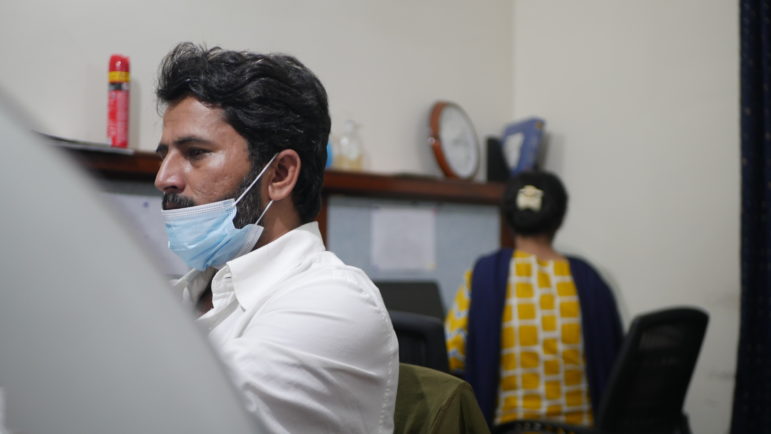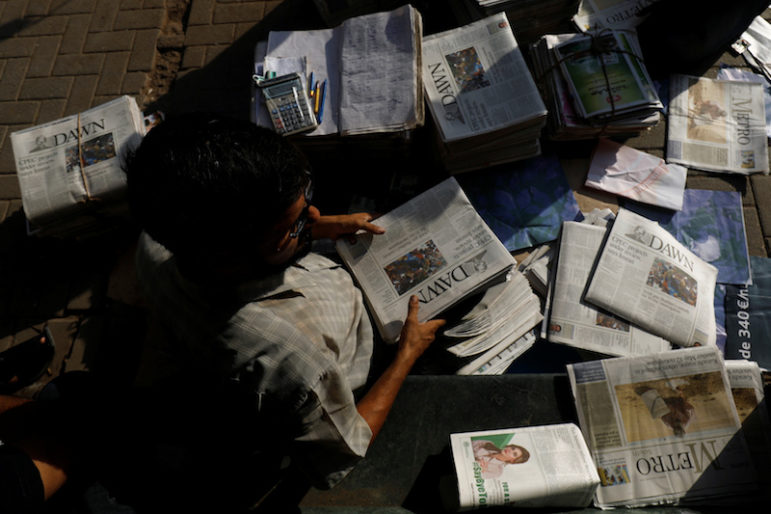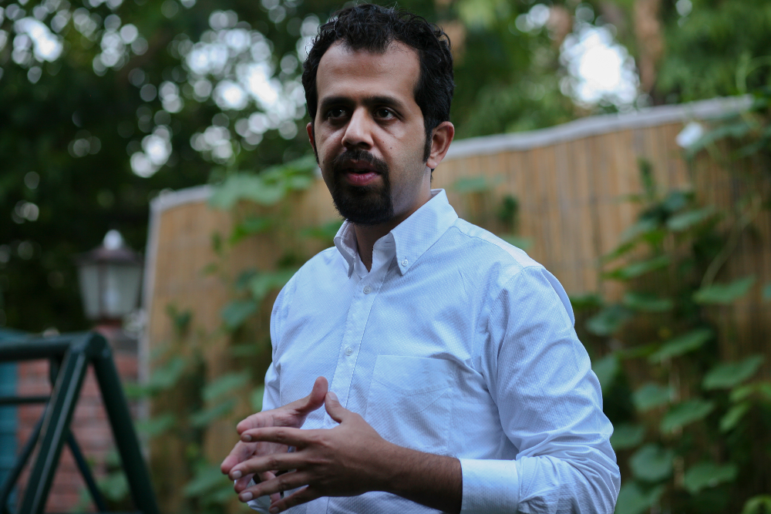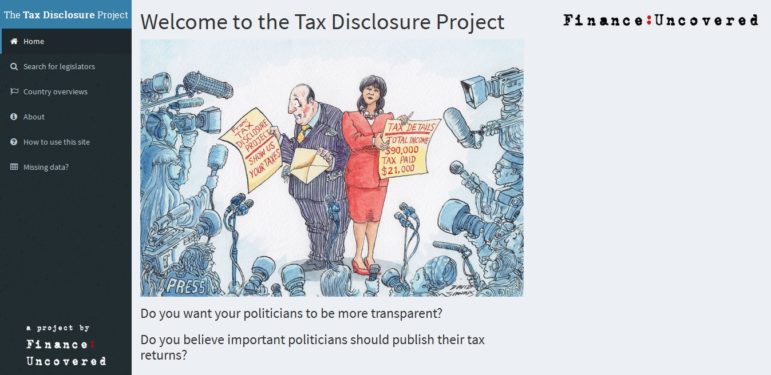

The Tax Disclosure Project
Last month, an international group of investigative journalists launched the Tax Disclosure Project — a global initiative requesting politicians in 20 countries to publicly disclose their tax returns. The project, coordinated by London-based GIJN member Finance Uncovered, aims to ensure transparency, accountability, and an avoidance of wrongdoing and potential conflicts of interest among lawmakers. In this interview, Finance Uncovered co-director Nick Mathiason shares with GIJN the process of setting up this cross-border collaboration.
How did the idea come about?
The inspiration for the Tax Disclosure Project was esteemed Pakistani journalist, Umar Cheema, a board member of Finance Uncovered and a member of the International Consortium of Investigative Journalists.
In 2012, Umar contacted all 446 federal legislators in Pakistan asking them to disclose their tax returns. Only two responded. He then trawled through Pakistan’s Electoral Commission to obtain the national tax numbers of politicians. Thanks to a whistleblower who helped check their tax records, Umar established that around 70% of Pakistan’s lawmakers, including the country’s President and 34 ministers, did not file tax returns.
The impact of his follow-up report in 2013 was phenomenal. Today every politician in Pakistan makes public his or her tax data. In fact, every Pakistani citizen’s tax details are published annually in a public directory. The country joins three others — Finland Norway and Sweden –– in publicly disclosing taxes.
What was involved in the process from the idea stage to the project launch and how long did this take?
 At Finance Uncovered we run courses that equip journalists and campaigners with skills and tools to investigate illicit finance and then we help our trained network get stories into the public domain. Umar attended a Finance Uncovered training event two years ago and presented the story of how he single-handedly forced every Pakistani politician — and indeed every taxpayer in his country — to disclose their taxes. His dogged meticulous work had tremendous impact. It made me think that we could try and replicate his methodology.
At Finance Uncovered we run courses that equip journalists and campaigners with skills and tools to investigate illicit finance and then we help our trained network get stories into the public domain. Umar attended a Finance Uncovered training event two years ago and presented the story of how he single-handedly forced every Pakistani politician — and indeed every taxpayer in his country — to disclose their taxes. His dogged meticulous work had tremendous impact. It made me think that we could try and replicate his methodology.
Finance Uncovered had the potential to do this because we have trained 210 journalists and campaigners from 70 countries. So two years later we organized a workshop for 20 of our alumni focusing on politicians’ assets and kleptocracy. On day one of our workshop we launched the Tax Disclosure Project by emailing 7,000 politicians in 20 countries, asking them to disclose their taxes.
Preparing the ground for the project took nearly two months. We worked with a tech team to create a platform that would not only send 7,000 emails to politicians in 20 countries but was something that members of the public would find simple and easy to use.
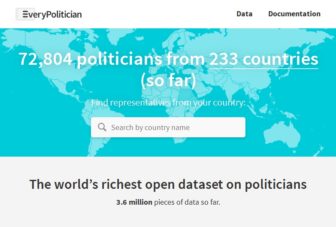 We had also to find the correct emails for politicians. This took a lot of scraping and formatting. We used the EveryPolitician portal to find some emails but they did not have all the countries we were focusing on. We also collected politicians’ Twitter handles and we hope people will tweet at their representatives asking them to publish their tax returns.
We had also to find the correct emails for politicians. This took a lot of scraping and formatting. We used the EveryPolitician portal to find some emails but they did not have all the countries we were focusing on. We also collected politicians’ Twitter handles and we hope people will tweet at their representatives asking them to publish their tax returns.
What kind of training was conducted to prepare participants in the project?
The overwhelming majority of journalists involved in the Tax Disclosure Project attended our Introduction to Investigating Illicit Finance course. This is a four or five day course normally held in London. We teach people the history, size, and scale of the offshore world, some macroeconomics, and focus on beneficial ownership and tax incentives. And that’s just day one!
We then teach accountancy and balance sheet interpretation, sessions on where to find company accounts in various countries, including tax havens, and then work on piecing together tax avoidance and corruption investigations. When we launched the Tax Disclosure Project, we worked with journalists who helped us get emails for politicians as well as translate where necessary the request letter. We then discussed our campaign tactics with them.
How is this coordinated? Are you using collaborative software?
The central hub for the Tax Disclosure Project is our website at taxdisclosure.org
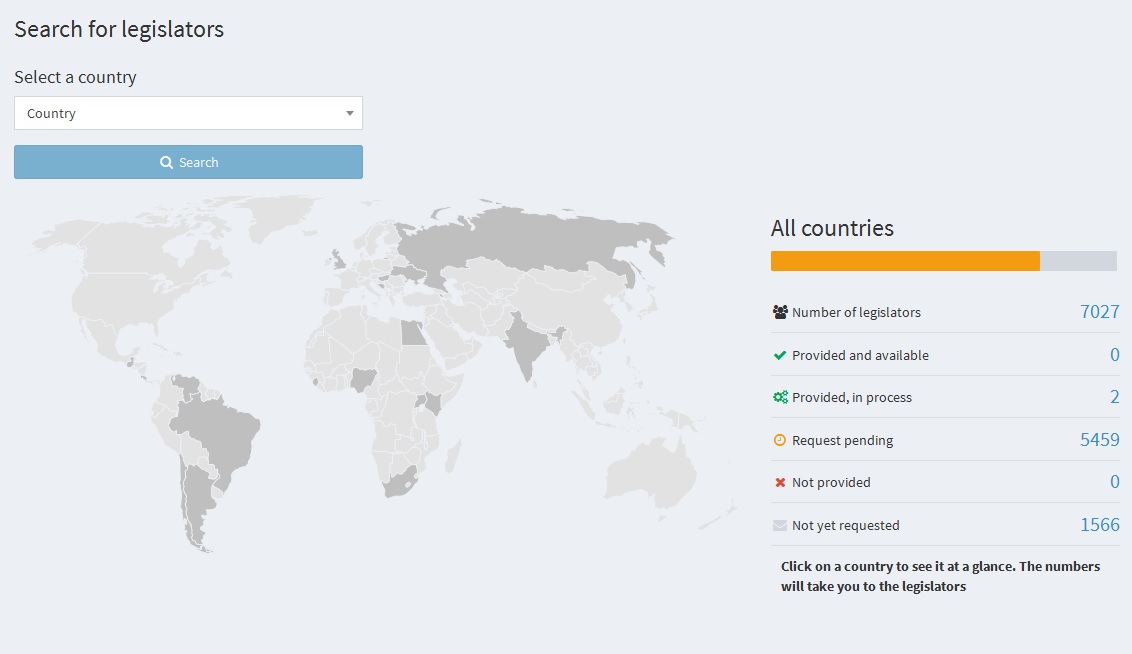 Through this site, accredited journalists can request the tax returns of politicians in their country. Responses of politicians are sent to us and we pass them on to the relevant journalist. When tax returns are disclosed we will wait 15 days before publishing them to give journalists involved in the project a chance to write the story. The public can see politicians’ Twitter handles and they can tweet at them to put pressure on them to disclose. In a few weeks we will allow the public to directly email their representatives if they have not disclosed.
Through this site, accredited journalists can request the tax returns of politicians in their country. Responses of politicians are sent to us and we pass them on to the relevant journalist. When tax returns are disclosed we will wait 15 days before publishing them to give journalists involved in the project a chance to write the story. The public can see politicians’ Twitter handles and they can tweet at them to put pressure on them to disclose. In a few weeks we will allow the public to directly email their representatives if they have not disclosed.
Are the journalists simply sending emails to MPs, or will FOI/RTI laws, leaks, and other techniques be used?
Journalists on this project are simply asking for the tax returns. Our launch gained coverage across the world. There will be more stories as politicians start to disclose their returns. We hope the existence of this project will encourage people to leak tax information about politicians’ taxes and true wages. I am not sure if freedom of information will achieve that much on this project, though it may be worth experimenting with as the information we require is definitely in the public interest! We hope politicians who disclose will campaign in parliament on this.
The project site mentions other journalists are welcome to join in. What are the requirements?
We welcome journalists getting involved in countries beyond the 20 up to now. Contact us at info@financeuncovered.org. We would need them to hunt down the email addresses of politicians in their country. The EveryPolitician website is helpful but there are some countries which they do not cover. We would love it if an American media organization got behind this campaign.
What were the challenges in launching this project? Do you foresee future challenges?
Setting up the Tax Disclosure Project required a lot of hard work formatting the emails, checking their accuracy, and liaising with our tech team. My colleague Jenna Corderoy deserves huge credit for being the engine on this. Our tech team in South Africa has been superb and the journalists we are working with have been incredibly responsive and enthusiastic.
The challenge is having the capacity to drive this campaign and keeping it going alongside our other work. We’d love it if a campaign organization got involved with this. We see our role as creating the platform and technology, working with journalists, but we would like others to help keep the fire alive. The great thing is every time a new country gets on board it creates another story. We would like to see people write opinion pieces and putting pressure on their politicians.
What goals does this project aim to achieve?
Essentially, we are trying to replicate what Umar did in Pakistan in as many countries as possible. Thanks to his work, Pakistan is more transparent than the U.S., Russia, the UK, Brazil, India, France, or Germany. We have seen the gap between the rich and poor widen. We can see how many politicians have been captured by vested interests. And recent years have witnessed a growing mistrust of politicians.
One of the best ways of turning around this situation is tax and earning transparency in our politics. There is no good reason why politicians cannot tell us their total income and the amount of tax they pay. This is something journalists can help achieve. Umar has proved it. Now we want to emulate his impact.
Mathiason was interviewed by Eunice Au of the GIJN staff.
 Nick Mathiason is a co-director of GIJN member Finance Uncovered, a London-based reporting and training project that equips journalists and campaigners with skills and tools to investigate illicit finance. Nick was previously a business correspondent at the Bureau of Investigative Journalism and at Guardian and Observer.
Nick Mathiason is a co-director of GIJN member Finance Uncovered, a London-based reporting and training project that equips journalists and campaigners with skills and tools to investigate illicit finance. Nick was previously a business correspondent at the Bureau of Investigative Journalism and at Guardian and Observer.






